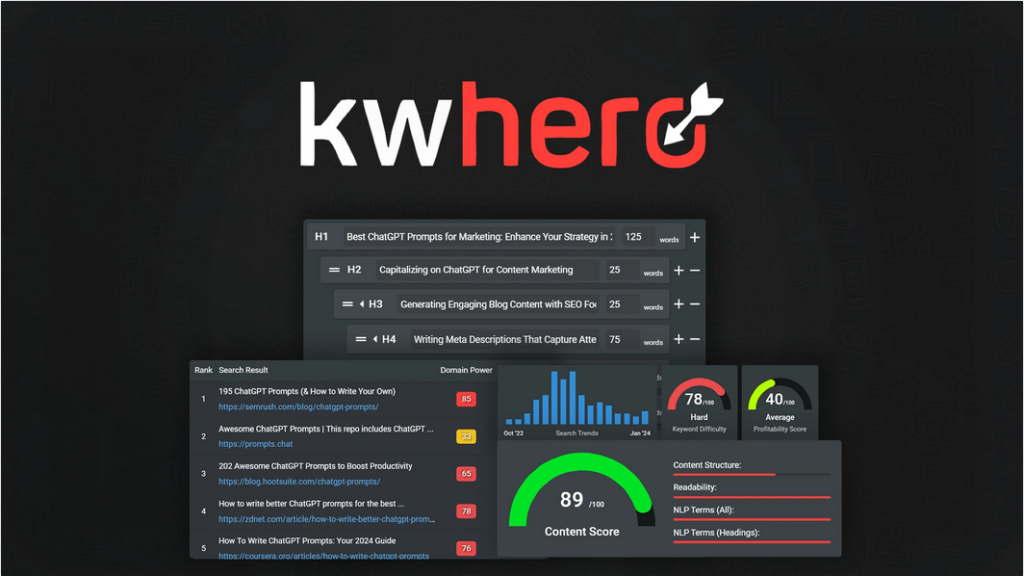Search Engine Optimization Guide
Search Engine Optimization (SEO) is the process of optimizing your website to rank higher on search engine results like Google Search. A complete guide to SEO can help you understand how search engines like Google and other search engines use search intent to help people search for information.
seo
When it comes to SEO, it is important to have a good SEO starter guide to learn the basics of SEO work. Google’s Search Console and Google Search Central are valuable resources for beginners to learn SEO and improve their SEO knowledge.
technical seo
For SEO success, it is essential to optimize your website for organic search and rank higher on Google. This involves using SEO tools and conducting search volume and search queries research to help search engines like Google understand the content on your website.
on-page seo
On-page SEO and technical SEO are important strategies to implement in order to optimize your website for search and improve your search engine results page rankings.
importance of seo
There are different types of SEO, such as local SEO and SEO for beginners, that focus on improving your website’s visibility in specific regions or for those new to SEO.
google ads
In addition, using Google Ads can help drive traffic to your website and improve your rankings on search engine results pages. By following a complete SEO guide and implementing SEO strategies that are optimized for search, you can increase your website’s visibility and reach a wider audience.
search engine optimization
Overall, having a good understanding of SEO basics and using SEO tools and research tools can help you optimize your website and improve your search engine rankings.
learn seo
By helping search engines like Google and other search engines understand your content and tell search engines what your website is about, you can increase your chances of ranking higher on search engine results pages and driving more traffic to your website.
read about Search Engine Optimization techniques
complete guide to seo
Search Engine Optimization (SEO) is crucial for any website looking to increase its visibility and attract more organic traffic. In this comprehensive guide, we will delve into the key strategies and best practices for optimizing your website for search engines.
seo work
SEO stands for search engine optimization, which is the practice of optimizing your website to improve its visibility in organic search results. By implementing SEO tactics and creating SEO content, you can increase your website’s presence in search and attract more search traffic.
types of seo
The google search console and google search central are valuable tools that help google find and index your website, ultimately improving your google ranking. It’s important to have a google business profile and ensure the relevance to the search query to make it easier for search engines to recognize your website.
When users type into google, google might display your website in the search results if it’s deemed relevant to the query. By following basic SEO principles and guidelines, you can tell google what your website is about and why it should be shown to people and search engines. Whether you are a beginner or an experienced marketer, understanding google ranking factors and search essentials is crucial to improving your website’s visibility and search traffic.
Understanding SEO
SEO is the practice of optimizing your website to rank higher in search engine results pages (SERPs) for relevant keywords. By improving your website’s visibility, you can attract more organic traffic and potential customers.
Why is SEO important?
- Increased visibility: Higher rankings in SERPs can lead to more organic traffic to your website, increasing your online presence.
- Credibility: Websites that rank higher are often perceived as more trustworthy and authoritative, building credibility with users.
- User experience: SEO best practices can improve the overall user experience of your website, leading to higher engagement and lower bounce rates.
Key SEO Strategies
1. Keyword Research
Keyword research is the foundation of any successful SEO strategy. By identifying relevant keywords for your website, you can create high-quality content that resonates with your target audience. Conduct thorough keyword research to understand search intent and competition levels.
2. On-Page Optimization
On-page optimization involves optimizing individual web pages to improve their search engine rankings. This includes optimizing meta tags, headings, URLs, and content. Ensure your content is well-structured with relevant keywords and internal links for better indexing.
3. Off-Page Optimization
Off-page optimization focuses on building backlinks to your website from other reputable sites. Backlinks are a crucial ranking factor for search engines and can significantly impact your website’s visibility. Focus on acquiring high-quality backlinks from authoritative websites within your industry.
4. Technical SEO
Technical SEO involves optimizing the technical aspects of your website to improve its crawlability and indexability. This includes optimizing site speed, mobile-friendliness, and site structure. Conduct regular site audits to identify and fix technical issues that may hinder your SEO performance.
5. Content Marketing
Content marketing plays a vital role in SEO. By creating high-quality, relevant content for your target audience, you can attract more organic traffic and establish your website as an authority in your industry. Develop a content calendar and focus on creating valuable and engaging content that addresses the needs of your audience.
Best Practices for SEO
1. Create High-Quality Content
High-quality, relevant content is essential for SEO success. Focus on creating engaging, informative content that provides value to your audience. Use a mix of formats like blog posts, videos, and infographics to appeal to different types of users.
2. Optimize Meta Tags
Meta tags, including title tags and meta descriptions, are crucial for SEO. Optimize these tags with relevant keywords to improve your website’s visibility in SERPs. Craft compelling meta tags that accurately reflect the content on the page to entice users to click through.
3. Improve Site Speed
Site speed is a critical ranking factor for search engines. Ensure your website loads quickly to provide a better user experience and improve your SEO rankings. Compress images, minify code, and leverage browser caching to optimize your site’s speed performance.
4. Mobile-Friendliness
With the increasing use of mobile devices, it’s essential to have a mobile-friendly website. Optimize your site for mobile users to improve your SEO rankings. Implement responsive design, prioritize mobile usability, and ensure seamless navigation on mobile devices.
5. Monitor Performance
Regularly monitor your website’s performance using tools like Google Analytics. Analyze key metrics such as organic traffic, bounce rate, and conversion rates to make informed decisions for your SEO strategy. Set up custom reports to track progress over time and make data-driven optimizations to improve your website’s overall performance.
In conclusion, SEO is a vital component of any successful digital marketing strategy. By implementing the key strategies and best practices outlined in this guide, you can improve your website’s visibility, attract more organic traffic, and ultimately grow your online presence. Stay updated with the latest SEO trends and continuously refine your strategy to stay ahead of the competition.
FAQ
1. Why is SEO important?
SEO is important because it increases visibility, credibility, and enhances user experience.
2. What is the foundation of a successful SEO strategy?
Keyword research is the foundation of a successful SEO strategy.
3. What is off-page optimization?
Off-page optimization focuses on building backlinks to your website from other reputable sites.
4. Why is content marketing important for SEO?
Content marketing is important for attracting more organic traffic and establishing your website as an authority in your industry.



Trackbacks/Pingbacks